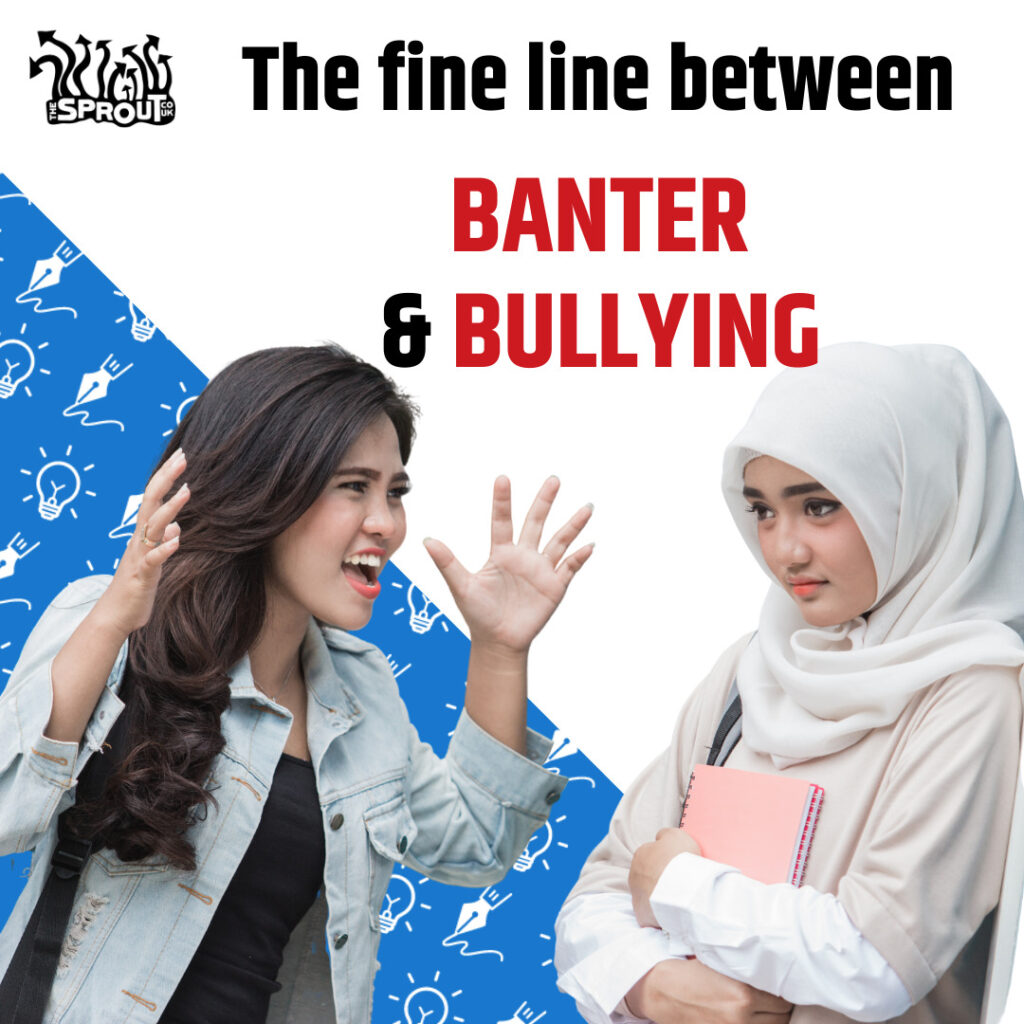Banter is intended to be the playful and friendly exchange of teasing remarks between friends. It can include sarcasm, wordplay, exaggeration and other comedic themes. However, sometimes banter is used as an excuse to gloss over mean comments and behaviours to other individuals. Let’s unravel the fine line between banter and bullying.
It’s not banter if…
You would be upset if someone did it to you
Think about how you would feel if someone was directing the banter towards you. Would it hurt you? Would you be upset? Remember, what may not hurt you may hurt someone else, so it’s important to think empathetically about the things you say and the way that you behave as some individuals are more sensitive than others.
You’re not friends
Banter is only ever okay if it’s with your friends. Banterous behaviour towards strangers can be classed as bullying.
It’s hurtful
If your banter has hurt someone, then it is bullying. You may not have intended it to be hurtful but refrain from saying the same things or acting the same way again. If you have hurt someone with your banter, the best thing to do is apologise and ensure the individual is okay. Do not make comments or behave in a similar way again.
Someone has asked you to stop
If you’re having banter with your pals and they have asked you to stop, then stop. This is a sign that they are not enjoying the banter and that they may be hurt. Continuing the banter could be bullying.
Your target isn’t laughing
Banter is intended to be funny and enjoyable to all parties involved. If your target isn’t laughing, they are most likely upset. Some people may fake laugh but may actually be hurt. If you think this is the case, it’s best to apologise and stop the banter.
It focusses on someone’s insecurities
If your banter is based on the insecurities of your friends, then this may be bullying. Nobody likes to be made fun of for the things they are insecure about. Banter based on this is likely to make your friends feel worse and have low self-esteem.
On top of these important mentions, it’s also essential to highlight that there are different types of banter. According to the Anti-Bullying Alliance, these are:
- Friendly Banter – There is no intention to hurt and everyone knows the limits to the banter
- Ignorant Banter – This ‘crosses the line’ whereby what was meant to be funny is hurtful. There was no intention to do this. Apologies are said.
- Malicious Banter – Done to humiliate a person, often in public.
The only form of banter that we should strive for is friendly banter as it focusses on being enjoyable and not harmful to all parties involved. Ignorant banter is where the line is crossed and harm is caused. If you have crossed this line, the best thing to do is apologise. Under no circumstance is malicious banter okay as it is very harmful to others and is bullying.

